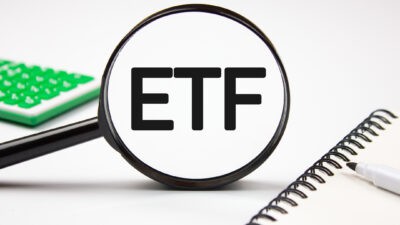The right ASX-listed exchange-traded funds (ETFs) can provide investors with a combination of good diversification and (hopefully) excellent returns.
While the Australian share market is weighted towards ASX bank shares and ASX mining shares, the international share market includes many companies with global growth ambitions in exciting sectors like technology.
Some of our ASX ETFs can provide pure exposure to the United States share market, which is home to numerous great businesses. However, it can also be beneficial to have some exposure to the best companies from other countries. That's why I really like the two exchange-traded funds below.
Vanguard MSCI Index International Shares ETF (ASX: VGS)
This ETF gives investors exposure to well over 1,000 businesses that are listed across 'developed' markets.
The ETF represents the following countries in descending weighting order: the US, Japan, the United Kingdom, France, Canada, Switzerland, Germany, the Netherlands, Denmark, Sweden, Italy, Spain, Hong Kong, Finland, Singapore, Norway, Israel, Belgium, and Austria.
The VGS ETF certainly ticks the box when it comes to geographic diversification.
Technology makes up around a quarter of this ETF's portfolio, with financials (15%), healthcare (11.8%), industrials (11.2%) and consumer discretionary (10.3%) being the other sectors to provide a double-digit weighting.
Technology companies aren't guaranteed to always deliver good returns, but that sector is capable of achieving high profit margins and faster revenue growth because of the intangible nature of many of its services.
I think the VGS ETF's technology exposure is why it has delivered an average return of almost 13% per annum since November 2014. Having said that, a reminder that we can't know precisely what the future returns will be.
Some of the portfolio's biggest positions include the world's strongest businesses: Microsoft, Apple, Nvidia, Alphabet, Amazon, and Meta Platforms.
Betashares Global Quality Leaders ETF (ASX: QLTY)
Investors may wonder if they need exposure to more than 1,000 businesses to achieve an appropriate level of diversification. I'd say probably not, but owning that many shares can help smooth out volatility.
Why not just own the good ones? Well, everyone may have different opinions on which ones are good.
The QLTY ETF takes quality metrics into consideration when deciding which stocks to invest in.
It owns 150 businesses that rank well on return on equity (ROE), debt-to-capital, cash flow generation ability and earnings stability.
Perhaps unsurprisingly, IT makes up an even bigger allocation in this portfolio (at 35%), while the industrial sector was 18.3% of the portfolio and healthcare was 14.9%, as of 31 May 2024.
Looking at the country allocations, the US has a smaller allocation in the QLTY ETF (68.7%) than the VGS ETF (72.2%), which means better geographic diversification. Other countries with a sizeable allocation inside the QLTY ETF include Japan, the Netherlands, France, Denmark, the UK and Switzerland.
Over the past decade, the index the Betashares Global Quality Leaders ETF tracks has achieved an average return per annum of 15.9%, outperforming the global share market by almost 3% per annum.
The quality screening process has led to good returns, though that may not always be the case.









